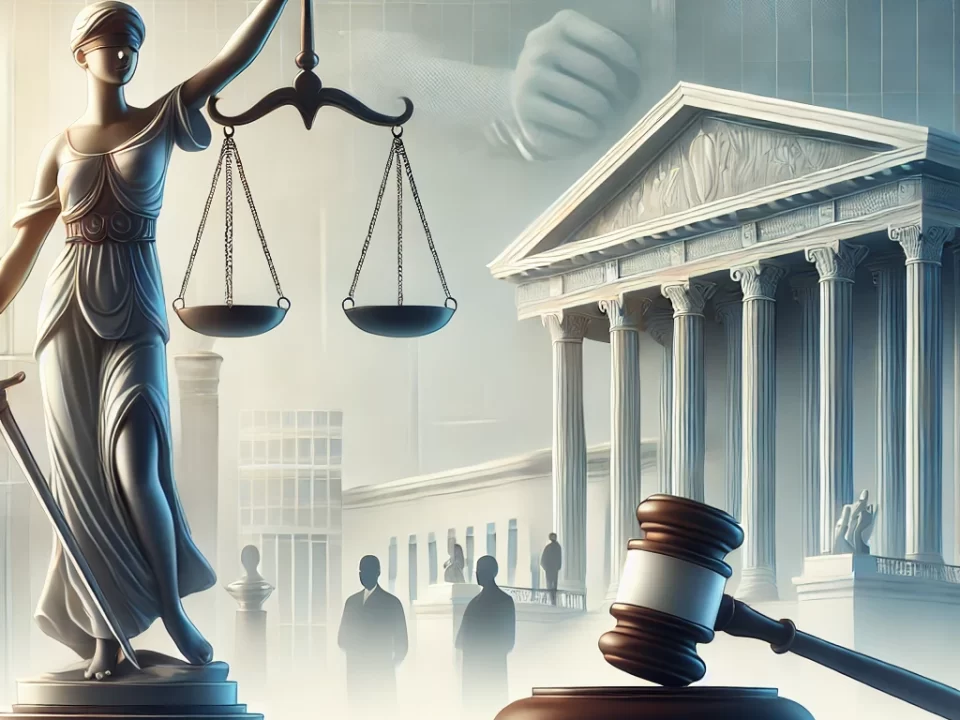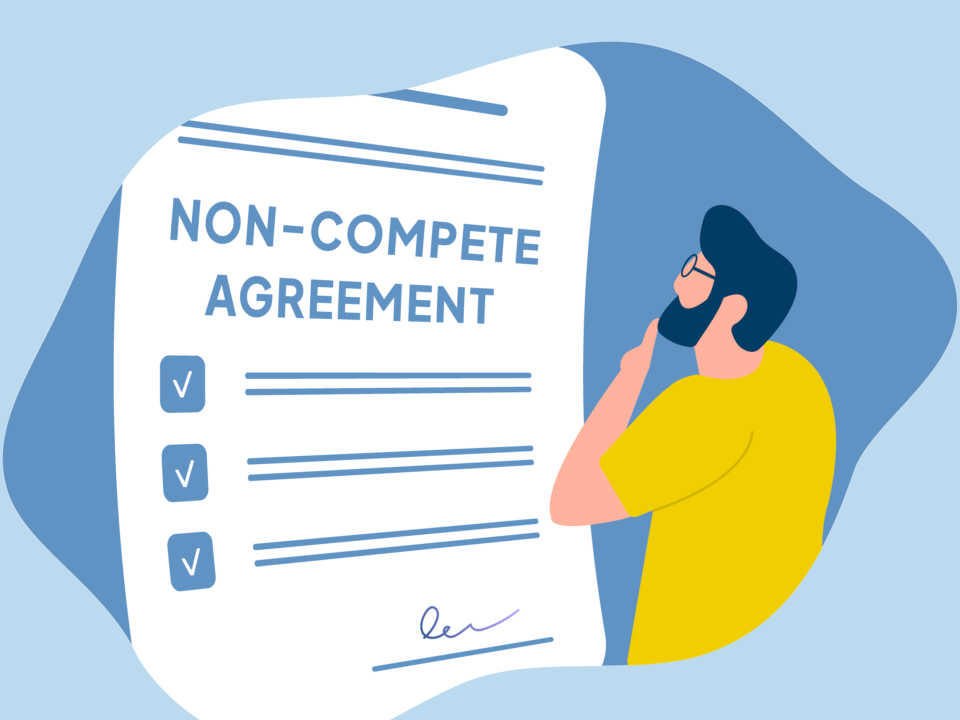Following a tragic series of recent events, individuals across the country have started voicing their opinions about social, cultural, and political issues with a passion not seen since the Civil Rights Movement of the 1960’s. From attending local protests to starting international online campaigns, thousands upon thousands of individuals have been doing everything in their power to make themselves heard.
But what happens when the individuals speaking out are your own managers, hosts, servers, and bussers – the literal faces of your business? Do you, as an employer, have the right to control how your employees choose to express themselves? If so, do your rights depend on what your employees are saying, where they are saying it, or who sees them saying it? Perhaps most importantly, even if you do possess such rights, should you ever choose to exercise them?
In fact, under both state and federal law, employers are permitted to regulate the speech of their employees under a wide variety of circumstances. Critically, those rights extend not only to employee speech at work, but also to employee speech away from work.
An employer’s rights are not without limit, however. Under certain circumstances, employees may have the right to express their views on certain subjects even if doing so causes harm to their employer or fellow employees. Further, even where an employer possesses the right to limit the speech of its employees, it may find itself liable for violating non-speech related laws if it exercises those rights in an improper or discriminatory manner.
For these reasons, is critical for all employers to know what speech related rights they possess, what limits on those rights exist, and how they should exercise (or not exercise) their own rights in response to the actions of their employees.
What Rights Do Employees Have?
There are four main legal sources that could provide employees with free speech rights in certain circumstances. However, there is often a great deal of confusion and misinformation when it comes to these areas, so it is worth exploring them at the outset.
United States Constitution
Contrary to what many individuals believe, the First Amendment to the U.S. Constitution does grant them the unfettered right to say whatever they want to say whenever they want to say it. Instead, it merely places limits on the ability of the federal government to restrict their speech under certain circumstances. Following the passage of the Fourteenth Amendment, those same limits were imposed on state and local governments.
Importantly, the First Amendment does not limit the right of private employers to restrict the speech of their employees in any way. In the absence of other state or federal laws to the contrary, private employers are free to regulate their employees’ speech as they see fit. Further, although the First Amendment limits the right of public employers to restrict the speech of their employees, the limits that it imposes upon them are not in any way absolute. Instead, as the U.S. Supreme Court has clarified, “the First Amendment simply protects a public employee’s right, in certain circumstances, to speak as a citizen addressing matters of public concern.” For this reason, if a public employee is not speaking as a private citizen and/or is not speaking about a matter of public concern, their federal employer is free to restrict their speech without violating the First Amendment.
Further, even if a public employee is speaking as a private citizen about a matter of public concern, their employer may still be able to restrict that speech without violating the First Amendment if it has an “adequate justification” for treating the employee differently from the general public. Whether such a justification exists depends on whether the public employer’s need to ensure the efficient provision of services to the public outweighs the employee’s need to speak about matters of public concern.
State Constitutions
Like the federal Constitution, each state constitution has language related to the freedom of speech. While this language differs from state to state, and often differs from the language contained in the U.S. Constitution, most state courts have interpreted their own constitutions to provide the same types of free speech protections contained in the federal version. Importantly, while the free speech limitations contained in the U.S. Constitution only apply to the actions of the government and its agents, the free speech limitations contained in many state constitutions also apply to the actions of private parties.
Additionally, certain state constitutions provide individuals with greater free speech protections than the U.S. Constitution. As stated by the Connecticut Supreme Court in 2015, “there is no evidence that the constitutional framers of the Connecticut Constitution intended to impose such severe limits on the speech rights of the state’s citizenry.” Similarly, as stated by the California Supreme Court in 2000, “as a general rule…the California Constitution’s free speech clause and its right to freedom of speech are not only as broad and as great as the First Amendment’s, they are even ‘broader’ and ‘greater’.”
National Labor Relations Act
Perhaps surprisingly, many of the free speech rights that employees possess are not constitutional in origin but instead arise from the National Labor Relations Act (NLRA). Enacted in 1935, the NLRA grants employees the right to engage in concerted activities for the purpose of attempting to improve their wages, benefits, or working conditions. Pursuant to the NLRA, it is illegal for employers to “interfere with, restrain, or coerce employees” not to exercise any rights granted to them under that Act.
Whether a given action qualifies as protected under the NLRA depends largely on whether its primary purpose is to fulfill one of the Act’s stated objectives. In the free speech context, protected actions could include an employee’s complaining to their employer about a lack of diversity in the workplace, an employee’s discussing their wages with another employee of the same company on social media, or an employee’s informing a government agency about their employer’s alleged performance of illegal employment actions.
Importantly, the NLRA does not generally protect an employee’s communications to members of the public or an employee’s mere “gripes.” Instead, in order to qualify for protection under the Act, an employee’s speech needs to truly be intended to facilitate the employer’s improvement of that or other employee’s wages, benefits, or working conditions.
Whether an employer’s policy violates the NLRA depends on: (a) whether and to what extent it interferes with the ability of employees to exercise their rights under the Act and (b) whether the employer has any legitimate business justifications for adopting the policy. Policies that are considered “generally lawful” are those which do not prevent employees from exercising any of their rights under the NLRA, such as policies prohibiting illegal forms of speech like defamation or fraud, which are not protected by the Act. In contrast, policies that are considered “generally unlawful” are those which frequently or always prevent employees from exercising their rights under the NLRA, such as policies prohibiting employees from discussing their wages, benefits, or working conditions with other employees.
State And Local Free Speech, Non-Discrimination, And Non-Retaliation Laws
In addition to the laws described above, many states and cities have laws that protect the right of employees to engage in free speech under specific circumstances. In New York, employers are generally prohibited from taking adverse action against employees related to any activities they perform outside of working hours. Similarly, in California, it is illegal for employers to attempt to coerce their employees to take, or refrain from taking, any political activity. And in the District of Columbia, it is illegal to discriminate against any employee on the basis of any protected class, including their political affiliation.
Importantly, the terms “politics” and “political” can sometimes mean actions that are “political in nature,” as well as actions intended to support or oppose the election of a public official. Actions that have sometimes been held to be “political in nature” include participating in litigation, wearing symbolic armbands, objecting to discrimination, supporting equal rights, and actions intended to advance certain beliefs or ideas.
Notwithstanding the above, most state laws granting private employees the right to engage in free speech limit those rights in clear and specific ways. For example, New York’s free speech law only protects employees’ actions if they are legal, take place off the employer’s premises, without use of the employer’s equipment or property, and do not create a material conflict of interest with the employer’s business.
Likewise, not every action that relates to political subject matter will qualify as protected activity in every circumstance. While an employee’s discussion of gay rights with other employees at a company social event might be considered an effort to associate with others in order to promote equal rights, that same employee’s discussion of gay rights with prospective customers of the employer might create an impermissible conflict of interest. As you can see, it is both the character of the action performed and the circumstances under which the action is performed that determines if it qualifies as protected speech.
What Rights Do Employers Have?
Given the above, it might appear at first glance that employers lack the ability to control their employees in any meaningful way. Not so. While it is certainly true that public employers are subject to more limitations than private employers, virtually all employers possess the ability to prohibit their employees from performing the types of actions that are the most damaging to their business. As described above, those actions include, but are not limited to:
- Illegal Speech – hate speech, racial slurs, harassing speech, discriminatory speech, retaliatory speech, defamation, fraud, disclosure of trade secrets, disclosure of proprietary information, and disclosure of most types of confidential information;
- Unprofessional Speech – speech that is rude, unprofessional, threatening, profane, insulting, uncivil, or discourteous in tone or appearance;
- Customer Speech – speech directed at customers, speech that involves the disclosure of private customer information;
- Gripes – speech that consists merely of griping and that is not intended to improve an employee’s wages, benefits or working conditions;
- Speech During “Working Time” – speech while employees are “on-the-clock”; and
- Disruptive Speech – speech that affects an employee’s job performance or the performance of their co-workers.
Further, while employers might not be able to regulate their employees’ speech in certain circumstances, they generally remain free to discipline their employees for legitimate business purposes. For example, while an employer might be prohibited from disciplining an employee for actions that they performed while attending a protest, it might well be entitled to discipline that same employee if they arrive at work late because they were attending that protest.
With these considerations in mind, it quickly becomes clear that employers generally have the power that they need to regulate employees who actually need to be regulated – those who are engaging in illegal or prohibited speech and those who are violating legitimate business policies.
When Should An Employer Exercise Its Rights?
Of course, just because you possess the right to limit its employees’ speech does not necessarily mean that you should do so. Rightly or wrongly, many employees are unaware of the limits that exist on their rights and may refuse to work for employers who choose to enforce those limitations. Additionally, an employer who improperly or inconsistently exercises its rights can quickly find itself being sued for violating federal, state, or local laws. For these reasons, choosing not to restrict employee speech might actually be the best policy for certain employers, including those that do not have the time or resources to properly exercise their rights.
All other employers should remember to exercise their rights in a legal, non-discriminatory, and non-retaliatory manner. If you choose to permit your employees to wear garments expressing support for a political cause that you agree with, you are likely required to permit your employees to wear garments expressing support for political causes that you disagree with. Likewise, if you contend that certain types of statements made by particular employees materially damage your business, you should remember to take that same position whenever any other employee performs the same type of action under the same types of circumstances. Finally, you must always make sure that you are not attempting to restrict any speech that is specifically protected under the NLRA, or any federal, state, or local law.
For further information or advice on how to navigate the potential pitfalls of Employee Speech this heated Political Season, contact The RAD Firm.






